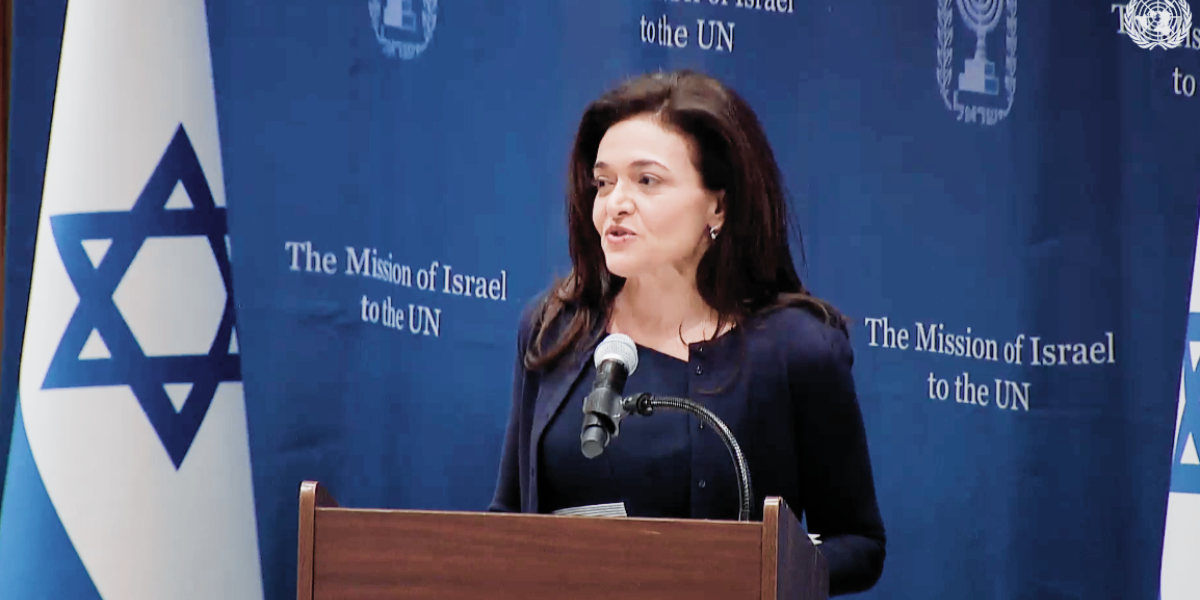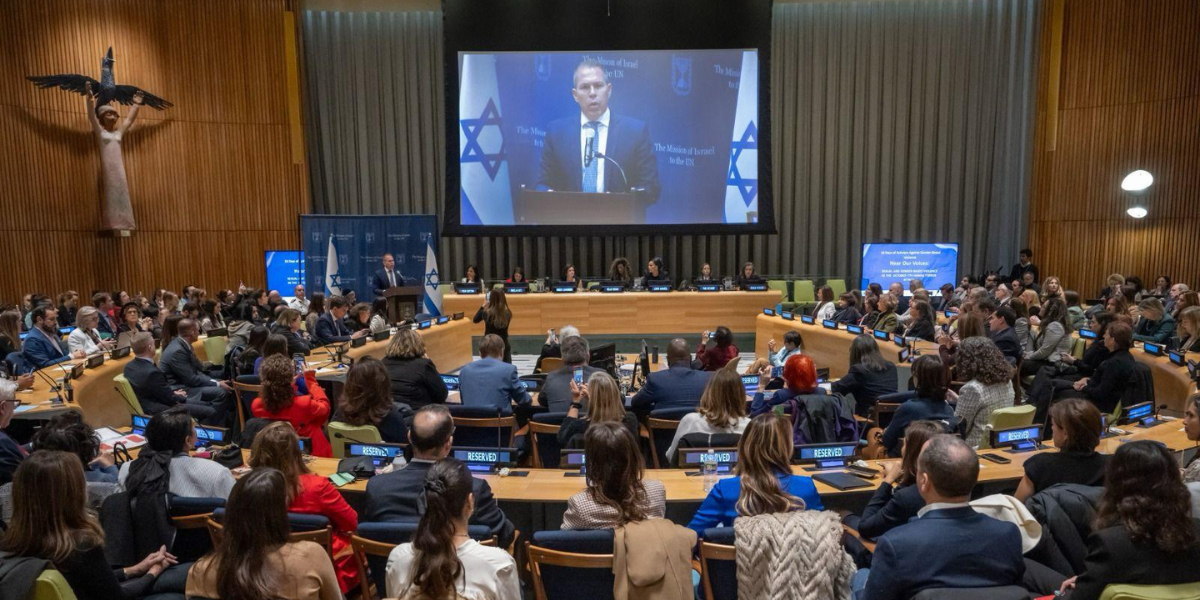Wider World
U.N. Session Decries Inattention to Hamas’s Abuse of Women

It took a two-month groundswell of global Jewish feminist energy to bring outrage over Hamas’s sexual abuse of Israeli women on October 7 to the halls of the United Nations.
And by the time hundreds of Jewish activists, politicians, physicians, rape survivors and even an Israeli beauty queen (Linor Abargil, a rape victim and advocate) filled a special United Nations session on Monday, the campaign for global recognition of the abuse—and specifically, for condemnation of Hamas’s crimes by the United Nations—had, by late last week, succeeded in eliciting responses from both the world body’s Secretary-General António Guterres and UN Women, the organization’s division dedicated to gender equity.
“There are numerous accounts of sexual violence during the abhorrent acts of terror by Hamas on 7 October that must be vigorously investigated and prosecuted,” Guterres wrote on X, formerly Twitter, on November 29, nearly 8 weeks after the Hamas attack. “Gender-based violence must be condemned. Anytime. Anywhere.”
In a December 1 statement, UN Women said: “We are alarmed by the numerous accounts of gender-based atrocities and sexual violence during those attacks. This is why we have called for all accounts of gender-based violence to be duly investigated and prosecuted.”
But Jewish officials and activists found both statements too vague and questioned why, instead of outright condemnation, the official remarks called for further investigation of crimes that have already been extensively documented by Israelis.
“This is too little, too late,” said Israel’s Ambassador to the United Nations Gilad Erdan, whose mission hosted the event. “If the U.N. chooses to remain silent in the face of evil, that does not mean the world will follow suit.”
The advocates gathered at the United Nations as well as those involved in online campaigns like #MeToo_Unless_Ur_A_Jew have decried what they view as the politicized double standard of women’s and human rights organizations toward Israeli victims. Critics charge that these groups call to #BelieveAllWomen—a catchphrase of the #MeToo movement against women’s sexual abuse and harassment—yet, despite overwhelming eyewitness and first-responder testimony of brutal rapes and butchery on October 7, demand further evidence.
“We would know this from victims if more had been allowed to live,” said Sheryl Sandberg, the former chief operating officer of Facebook and the event’s keynote speaker. “Then one would be standing beside me right here, to state something that should not need to be stated: Rape should never be used as an act of war. And the truth must be upheld despite the politics of our time,” said Sandberg, who currently heads Lean In, an organization devoted to women’s empowerment that grew out of her best-selling book of the same title.
Entitled “Hear Our Voices: Sexual and Gender-Based Violence in the October 7th Hamas Terror Attack,” Monday’s session was co-sponsored by the National Council of Jewish Women; Hadassah, The Women’s Zionist Organization of America; the World Zionist Organization; the Women’s International Zionist Organization; and Shazur, an American-Israeli cultural nonprofit.
An audience of several hundred leaped to its feet and cheered at the forceful pronouncements of Erdan; former Secretary of State Hillary Rodham Clinton, who spoke via recorded video; and New York Senator Kirsten Gillibrand, who serves on the Senate Women’s Caucus and earned a national platform for her support of the #MeToo movement.

But there was also silence—along with tears, from speakers and listeners alike—at the testimony of Israeli first responders and morgue staff who recounted violence nearly unthinkable in its sadism. In personal recollections and videos, they exposed how Hamas militants amputated, burned and raped women both alive and dead and paraded bodies through the streets, mutilating genitals for maximum humiliation.
The gathering also heard from Shari Mendes, an American-born architect who lives in Jerusalem and serves with an Israeli reserve team that prepares female soldiers’ bodies for burial. “As a child of a Holocaust survivor, I understand the importance of bearing witness,” she said. “And that is why I am here to repeat these unbearable stories to you, on behalf of my people and my country.”
“Today I bore witness. Today and all other tomorrows, I will speak along with others for those women and girls whose voice has been silenced,” said Frieda Unger Rosenberg, Hadassah’s education and advocacy coordinator who attended the session with a delegation of more than a dozen Hadassah and Hadassah Foundation representatives. “These monsters must be held accountable.”
Sandberg emphasized the historical role that the United Nations has historically played in calling attention to sexual violence as a war crime, including during the 1990s conflicts in Yugoslavia, Rwanda and the Democratic Republic of Congo.
She and other Jewish leaders said they hope for similar attention to the October 7 victims from the United Nations, whose Security Council in 2000 adopted a resolution that “calls on all parties to conflict to take special measures to protect women and girls from gender-based violence, particularly rape and other forms of sexual abuse.”
Hilary Danailova writes about travel, culture, politics and lifestyle for numerous publications.








 Facebook
Facebook Instagram
Instagram Twitter
Twitter
Jeraldine Wenkert-Larson says
What a moving and impactful event at the U.N., as described by the journalist, Hilary Danailova. We women must always stand together and fight harder to be heard and respected.